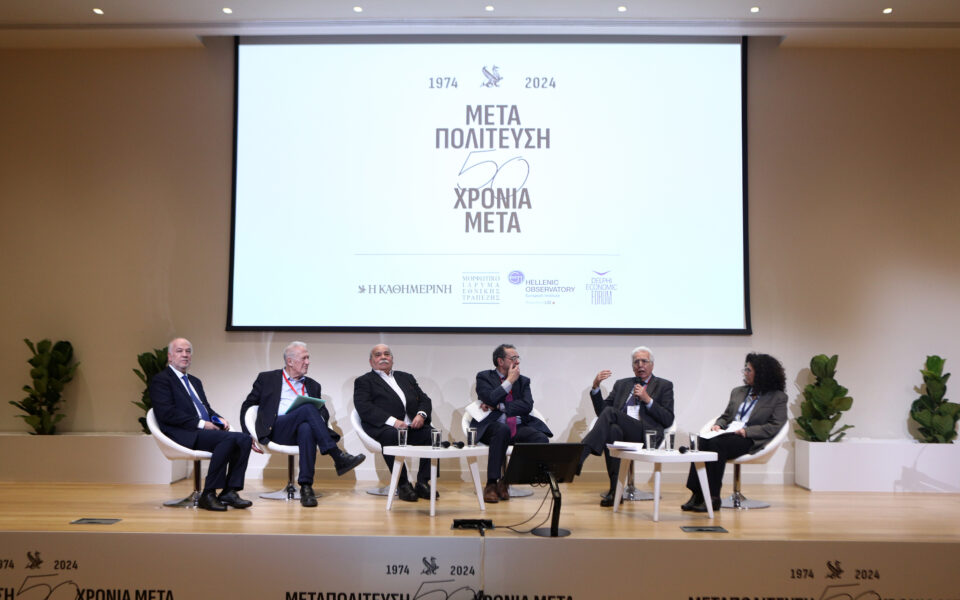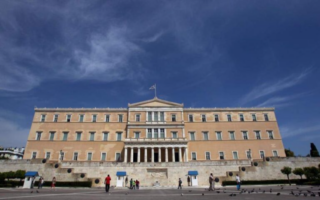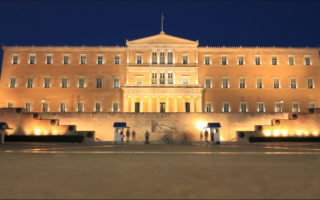The best, the worst, the hopeless times

How do we measure time? How do we evaluate our era, our history, if not through our lives, through the distillation of our experiences and judgment? Each sees things from a specific point, through different expectations, disappointments, fears and achievements. “Man is the measure of all things,” declared Protagoras – the truth is relative, depending on each person’s evaluation.
Paraskevas Avgerinos highlighted this truth, speaking at the conference on the “50 years of Metapolitefsi” on Friday. Closing a brief summary of the years since the fall of the dictatorship in 1974, and of the reforms instituted by Constantine Karamanlis and Andreas Papandreou (and later by Costas Simitis), the 96-year-old wise man of politics, speaking in a slow and steady voice, said: “I lived through all these things. I lived through the best of times in Greek history, but also the worst of times. I lived in the greatest century of history, the 20th Century. I lived through it all.”
Avgerinos – a doctor and politician, one of the architects of our National Health System – lived through war, occupation, civil war, dictatorship, the restoration of democracy, the debt crisis, the SYRIZA-Independent Greeks government. He is in a position to understand the importance of the achievements and reversals of the past decades. And his evaluation of things becomes even more interesting when we juxtapose it with the findings of a poll conducted by Pulse on occasion of the conference. It found that the perceptions of older citizens on the country’s progress in the years of the “Metapolitefsi” are significantly different to those of younger people. Those who were at least 10 years old in 1974 had a far more positive outlook on the country’s progress since then, and ton he quality of its democracy, than the total of those polled – when younger people are included, in other words. Whereas 47 percent of older people believe that the country’s course has been positive, only 33 percent of the total agrees. Also, while 25 percent of older citizens think the course has been for the worse, 34 percent of the total thinks this (exceeding the 33 percent who see it as positive). Regarding the quality of democracy, 39 percent of older people are “very” or “sufficiently” happy with it, whereas only 26 percent of the total agrees with this. Furthermore, 48 percent of the total is not satisfied (compared to 37 percent of elder voters).
Naturally, those who have lived through hard times – like war – have a greater appreciation for peace and stability. They understand that good times are not a given, that things are not black-and-white, that often situations are complicated and the road has obstacles and demands compromise. The older we are, the richer our past, we can see events in the wider context of the total of our experiences. But because each person’s outlook is of equal value, it there is an urgent need for all who are involved in public life to look very seriously at the pessimistic evaluation of the situation expressed by younger people. The disillusionment of those who have experienced neither the good times nor the worse times of past decades, who are not satisfied by the present and have no hope, is a mortal danger for them and for society.
A country’s progress is measured not only by successful or failed policies, but by the optimism, the sense of joy, of its young. Without a vision and tangible measures that will provide opportunities and secure justice for younger people, we are going nowhere.




